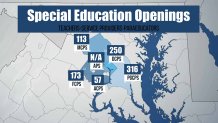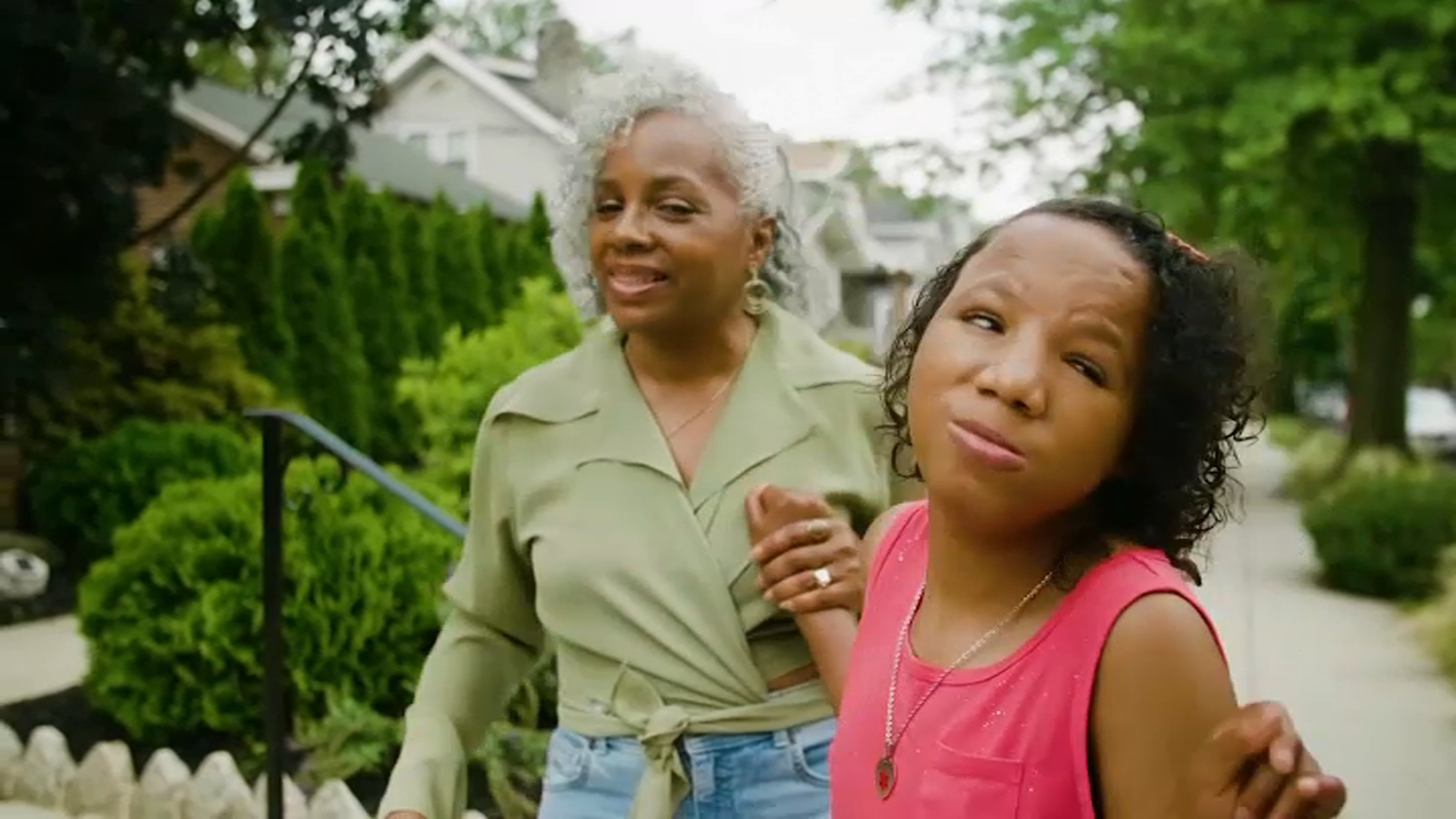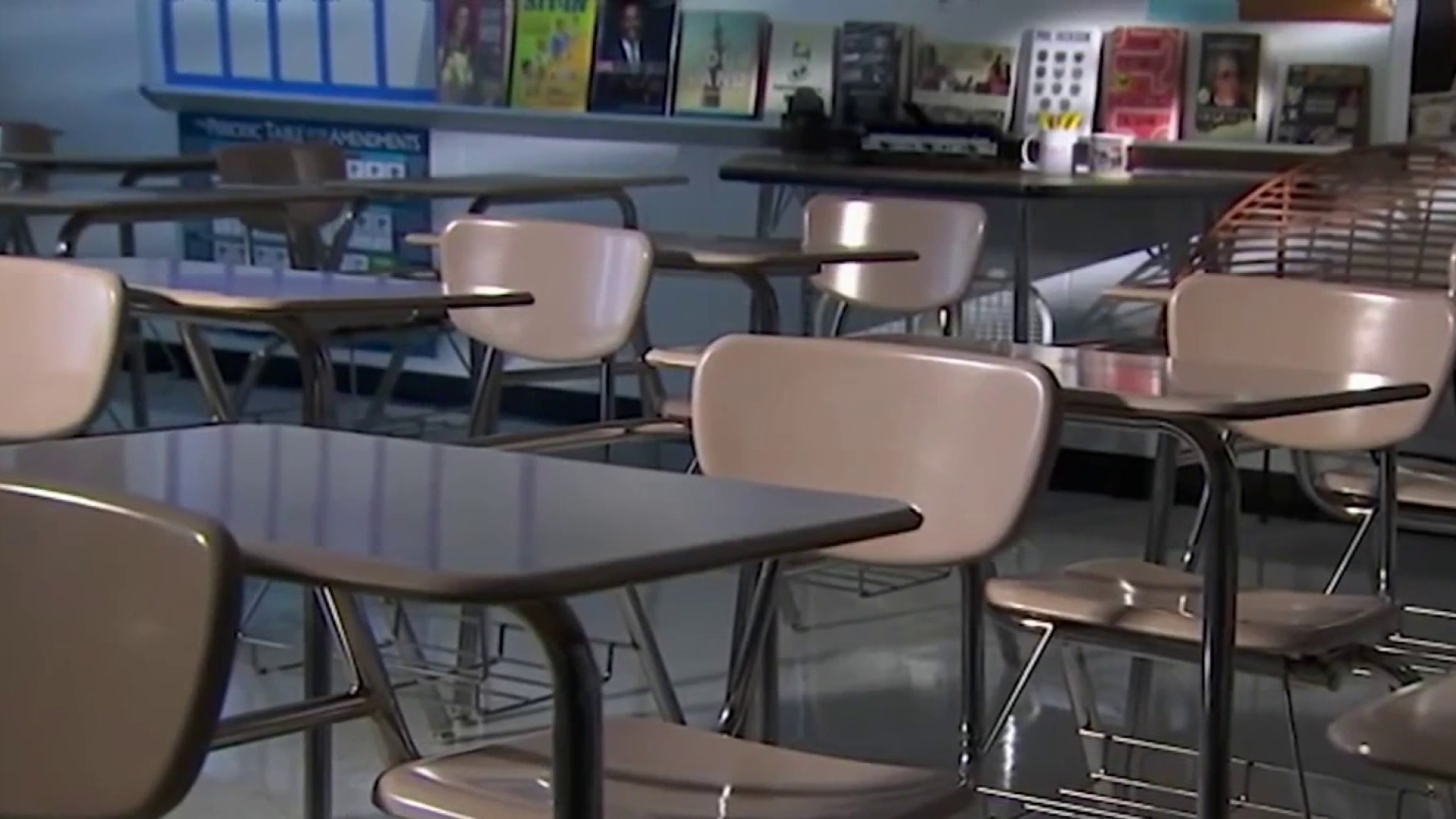When AJ and Tashna Morris-Daley had their second son, Luke, it was an instant love affair.
"From the day he was born, I just knew he was going to be something. I still believe that,” Tashna Morris-Daley said.
But as their little boy grew, they noticed he wasn't hitting some of the milestones his older brother did. Luke was eventually diagnosed with autism and attention deficit hyperactivity disorder.
Luke is now a kindergartener at a public school in Prince George's County, where he qualifies for what's called an individualized education program, or IEP. That means, under federal law, the school is required to help develop and provide the special services – such as speech and occupational therapy – Luke needs to thrive.
We're making it easier for you to find stories that matter with our new newsletter — The 4Front. Sign up here and get news that is important for you to your inbox.
But Luke's parents said he’s not receiving those services as regularly as he should and that he’s being sent home far too often. They also said they haven’t been able to get Luke an aide to help him stay on track in the classroom.
"Because of the shortage in the school system, we were told that, in the beginning of the school year, the aide never showed up to the interview and it's just not happening,” Tashna Morris-Daley said.
The lack of qualified special educators isn’t just a problem at Luke's school. The News4 I-Team found nearly 1,000 unfilled teaching positions for special education teachers, related service providers – the people who provide services such as speech or occupational therapy – and teaching aides, called paraeducators, in school districts across the region.

Through open records requests, the I-Team found the most openings in Prince George's County, with more than 300 open special education-related positions this school year. In Luke’s school alone, where 51 students have IEPs, officials report two of three full-time special education teaching positions are currently unfilled.
D.C. Public Schools reports 250 open positions for special education teachers, related service providers and aides, followed by 173 in Fairfax County Public Schools, 113 Montgomery County Public Schools and 57 in Alexandria City Public Schools. On Friday, Arlington Public Schools responded to the I-Team's inquiry and reported it has 41 unfilled jobs.
The crunch has left schools scrambling to fill the gaps with people who often don't have the qualifications required to teach students with special needs.
For example, the I-team found more than a quarter of all special education teachers in Montgomery County -- 570 of them -- aren't certified to teach in that field. MCPS has not yet responded to questions about whether those instructors are in the process of seeking certification in the special education field.
Experts said few schools can meet certification requirements given the ongoing shortage of special educators.
“With the significant decline in enrollment in the educator preparation programs, we are not meeting the supply and demand that is necessary,” said Laurie VanderPloeg, the associate executive director of professional affairs with the Council for Exceptional Children, an organization dedicated to improving outcomes for children with special needs.
She added any district using non-certified personnel should provide coaching and professional development opportunities for those instructors “to ensure higher level of results and student achievement.”
The shortage of special education teachers is no doubt a longstanding problem. According to the National Coalition on Personnel Shortages in Special Education and Related Services, 49 states report a shortage of teachers and specialists. The coalition cites reasons for the churn on excessive paperwork, unmanageable workloads, inadequate support and professional isolation.
Experts say that perennial churn was worsened during the pandemic, however, as many educators left, retired or otherwise struggled to provide services to students with disabilities during periods of remote learning.
Meanwhile, the number of children needing special education services has grown to more than 7 million, according to U.S. Department of Education.
Suzie Djidjoli, who has spent 12 years as a speech-language pathologist for MCPS, said the current staffing shortage is “by far the worst that I've ever seen it."
As part of the county’s Assistive Technology Team, Djidjoli travels to classrooms across the county and said she's seeing staffing deficits everywhere she goes.
“The job is already challenging, but when you are trying to accomplish that job with less people in the classroom to help support you, it really kind of pushes it over the edge to an untenable situation sometimes,” she said, adding, “I know some teachers who say that their job has really been boiled down to making sure everyone is safe.”
Djidjoli said pay is part of why people are leaving, but so is the heavy workload facing special educators, in particular, between teaching students with diverse and unique needs, intensive meetings, and filling out the paperwork required to document student progress.
She also said she’s especially worried about the impact the shortage has on students who are non-verbal or whose families may have English-language barriers.
"The impact that it’s having on the students, we may not really know until they get to the end of their school journey and we see the ways in which we failed them as educators,” Djidjoli said.
She told the I-Team she knows of several educators who have quit midyear.
The I-Team found, so far in this school year alone, roughly 650 special educators in the districts the I-Team queried have walked away. About half of them are paraeducators, or aides who assist teachers, like Wendy Calhoun.
Calhoun said she loved being a paraeducator under a certified teacher several years ago – before budget cuts ended her job in a special needs-intensive classroom.
But Calhoun said when she returned to a classroom for preschoolers with special needs this year, she found a revolving door of substitutes due to the ongoing shortage of certified special education teachers.
“When it became clear that it would be a series of long-term substitutes and not a permanent teacher, that was the final straw for me. I felt the class was not being supported in the way that it should be,” said Calhoun, who added, “I love those kids. I miss those kids every day.”
Calhoun cited several reasons she believes teachers and aides are leaving and what needs to change to keep them, noting she believes school districts should stick to guidelines regarding special education classroom sizes so that teachers are better able to help students make progress.
She also said school systems should reevaluate critical staffing, noting some key roles are considered temporary and part time, which she said translates to low pay and few to no benefits.
Asked what she misses the most about the job, Calhoun said, “The children's faces when they learn something new; when they accomplish something for the first time.”
School districts across the region said they're doing their best to recruit and retain these educators.
Margaret Browne, the director of recruitment and retention for Alexandria City Public Schools, said that means thinking outside the box at a time fewer college graduates are getting special education degrees.
The decline in graduates has “meant we had to look out for career switchers, individuals who may not have a traditional education degree or prior experience but were passionate and excited about getting into the classroom,” Browne said.
Staffing special educators is her top priority, she said, alongside hiring dual-language teachers. ACPS is trying to entice those educators with increased pay and benefits, while working to make personal connections it hopes will get people on board and keep them there.
“These kids still need these services, and our schools are absolutely dedicated to making sure they [receive them] day in and day out,” Browne said.
Elsewhere, Montgomery County said it's offering incentives to new teachers, as well as current ones who are certified and willing to switch into special educator roles. Arlington said it’s offering hiring incentives for special education teachers, as well as relocation assistance. And many districts across the region said they offer "grow-your-own" programs to help current employees or long-term substitutes become special education teachers. Many are also partnering with colleges to train the next generation of teachers and aides.
But in Prince George's County, Luke's parents worry additional help won't arrive for kids like him soon enough.
"These are the pivotal years for their education,” AJ Daley said. “If he's not getting the help and support now, what does that mean for his future?"
The I-Team asked Prince George's County Public Schools about the family's concerns, and while officials didn't discuss the specifics of Luke's case, they acknowledged his school has just one special education teacher and two vacancies. A spokeswoman also said the school is getting support from the Department of Special Education, two itinerant special education assistants and others.
Update (April 15, 2023 at 5 p.m.): This story now includes data and information provided by Arlington Public Schools.
This story was reported by Tracee Wilkins, produced by Katie Leslie, shot by Steve Jones, and shot and edited by Jeff Piper.
Sign up for our Breaking newsletter to get the most urgent news stories in your inbox.



